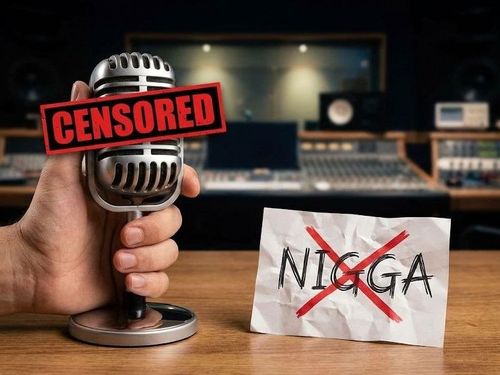In today’s complex political climate, many of us wonder how power is really divided when it comes to military action. You might ask yourself, can a president declare war without consulting Congress? This question isn’t just academic—it touches on the core of our nation’s checks and balances.
It also raises issues of national security and the evolution of executive power over the decades. Understanding the intricate dance between the president and Congress is crucial if we want to grasp the war declaration process and its implications.
Understanding the Constitutional Framework
The US Constitution sets the stage for a delicate balance of power. When we talk about whether a president can declare war without Congress, it all begins here. In this section, we look at the legal authority that the Constitution assigns to the executive branch.
In the framework of the US Constitution, the president is designated as the commander-in-chief of the armed forces. This title grants significant authority for military action. However, only Congress has the power to declare war, which brings us to the heart of the debate. How do we reconcile these two roles? While the president holds substantial prerogatives in terms of immediate response, the law clearly states that a formal declaration of war requires an act of Congress. The term “declare war without Congress” is often used in debates about executive power, and it has led to heated discussions in both legal and political circles.
Historically, even when presidents have taken bold military actions, they have often done so with the backing – whether explicit or tacit – of Congress through funding measures or retrospective approvals. This balance of power ensures that neither the executive nor the legislative branch wields unchecked authority over national security matters.
Historical Context and Precedents
Delving into history can provide us with valuable insights. Examining historical examples helps illustrate how presidents have navigated the interplay between war powers and congressional oversight in times of crisis.
Over the decades, several presidents have engaged in military actions without a formal declaration of war by Congress. For instance, during the Korean War, administrations took military actions based on the perceived urgency of the situation while often relying on the war powers resolution to justify their decisions. The phrase “presidential authority” was invoked time and again, suggesting that swift action was deemed necessary for national security.
These historical examples remain a topic of debate today. Some argue that such loose interpretations of war powers have paved the way for unchecked executive actions, while others maintain that they were essential responses to fast-moving global threats. One could say that this debate is reminiscent of a pendulum, swinging back and forth between executive flexibility and the need for democratic oversight.
The shift in norms over time has led many to suspect that the separation of powers, as originally intended in the Constitution, has been blurred by modern circumstances. This complex evolution means that what looked acceptable in one era may now be criticized as overreach.
Recent Debates and Examples
Recent political events have further spotlighted the ongoing debate: can a president declare war without consulting Congress? The modern world, with its rapid pace of global changes, often sees presidents acting on what they deem as urgent military situations. In this section, we unravel some of the recent controversies surrounding executive power and military action.
Many policymakers and legal experts have voiced concerns over the potential for misuse of presidential authority. Discussions in newsrooms and congressional hearings alike often revisit the war powers resolution, a legislative measure intended to check the president’s ability to engage in prolonged military conflicts without Congress approval. It’s a topic that stirs passions on both sides of the political aisle.
Take, for instance, instances where presidents have engaged in targeted strikes or other military interventions without a formal declaration of war. These decisions are sometimes justified as necessary to respond to emerging threats, yet critics caution that bypassing Congress in these instances can undermine the system of checks and balances. The tension between speedy reactions in critical situations and the rigorous process required by the US Constitution continues to define this debate.
This is a fine example of executive power clashing with the explicit war declaration process mandated by Congress. You might even say that it’s like trying to navigate a river without a map—while quick decisions are sometimes necessary, the potential risks are evident when proper oversight is lacking.
Legal and Political Implications
When we talk about the legal authority and political implications of a president’s decision to declare war without Congress, we step into a realm filled with nuance and complexity. This section outlines the legal debates and political consequences of extending executive power in military matters.
Legally, the president’s role as commander-in-chief comes with both latitude and limitations. While the president can order military action, history has shown us that such decisions are rarely made in a vacuum. Leaders must often navigate the stipulations of the war powers resolution and consider the long-term political implications of their decisions. This legal tug-of-war can be especially contentious during times of crisis, when swift decisions may be necessary, yet proper checks are equally important.
The political fallout from unilateral military actions can be significant. Congress approval is more than just a legal formality—it represents a collective judgment of the nation’s representatives. When a president bypasses this consultation, it often leads to a fierce debate about the proper balance of power. Many legal scholars emphasize that a robust system of checks and balances is fundamental to preserving the integrity of our national security policies.
At the heart of such controversies lies a question that is as old as the republic itself: are we sacrificing accountability for expediency? Critics argue that bypassing Congress dilutes the responsibility of democratic decision-making. Conversely, supporters believe that in moments where time is of the essence, the president must have the freedom to act decisively. This ongoing debate is a clear example of how interpretations of the US Constitution evolve with changing political times.
The Future of Executive Power and War Powers
Looking forward, we must ask ourselves: how will these issues shape the future of executive power? The debate around war powers is far from settled, and recent trends suggest that the balance between rapid response and democratic oversight will continue to be a contentious battleground.
As new military challenges emerge on the global stage, the role of the president in declaring military action will likely come under increased scrutiny. Innovations in technology and shifts in the geopolitical landscape mean that presidents may be tempted to act unilaterally to safeguard national security. However, the constitutional mandate for congressional involvement remains a vital check on unchecked executive power.
The discussion about whether a president can declare war without consulting Congress is not just a legal question—it also reflects deeper political implications. It symbolizes the ongoing struggle between executive authority and the foundational principles of democratic governance. Many experts indicate that future administrations must find a way to balance swift military action with accountability to Congress, ensuring that every decision is steeped in both legal authority and political legitimacy.
In sum, navigating this balance is similar to walking a tightrope between responsiveness and responsibility. The debate is a reminder that the US system of governance is built on a foundation of debate, compromise, and, yes, even occasional conflict.
This exploration of presidential authority in times of war reminds us all of the importance of understanding our country’s constitutional fabric. From historical examples to modern controversies, the question of whether a president can declare war without consulting Congress is as much about legal interpretation as it is about the values we uphold as a nation.




